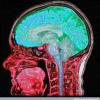The medicine you are taking, zyprexa, lowers dopaminergic stimulation in the brain. Using another medicine / supplement to increase dopamine might not be a good idea, if there is a good reason why you are on long term zyprexa treatment.
...
So make an appointment and hear em out =)
Dude! You are lapping up the dated paradigms of psychiatry like a voracious dog. The dopamine hypothesis of schizophrenia is shaky and incomplete. Did you even know that atypical antipsychotics like Zyprexa act on a wide range of neurotransmitters? I have a friend who works at Eli Lilly doing medical writing, she showed me one of their propaganda studies (my impression, but she didn't disagree) that says it shows activity at histamine, GABA and norepinephrine receptors. It likely also shows activity at the orexin/hypocretin receptors; this peptide neurotransmitter has only recently been discovered and may play a significant role in the sedation and weight gain associated with antipsychotics.
Oh yeah, a little more importantly:
you went manic on Zoloft, an SSRI. Zyprexia shows activity at D2 and 5HT(read: serotonin) recptor subtype 2A. Even though the document acknowledged its activity at various other receptors, they honed in on these two because DA supports the hypothesis, and 5HT antagonism makes it look like depression (treated with indirect 5HT agonism) and psychosis are opposing symptoms-- while clearly they can stem from the same pathology. All atypical antipsychotics affect serotonin. You could try tianeptine, which has a mechanism directly opposing SSRI's.
In the meantime, if somebody is truly psychotic I am strongly under the impression that anticonvulsants such as valproic acid and carbamazepine, as well as newer atypicals like Lamictal, are a much safer route-- though still with significant drawbacks. Another important thing is to look at drug interactions. Psychiatrists seem to be completely oblivious to Cytochrome P450 interactions. Wikipedia has a nice list of various substrates, inducers, and inhibitors. These interactions can result in too much or too little of various drugs in the bloodstream.
One of the worst aspects of American psychiatry is that the doctors need you to believe, need to even believe themselves, that they really understand the tools they are working with. Press any psychiatrist hard enough and they will admit that they CANNOT correlate their observations of your cognitive and behavioral symptoms with what is occurring in your brain, and that even if they could they could not necessarily treat that pathology with their pharmacopeia.
The more complete dopamine hypothesis indicates that there is also a deficiency of dopamine in the prefrontal cortex, resulting in the negative symptoms of schizophrenia. This is one reason I am pushing very hard on the forums for an investigation and possible bulk purchase of dihydrexidine, a full D1 receptor agonist. Dihydrexidine has been demonstrated to be safe and well tolerated in schizophrenics. The simple theory of "too much dopamine" has been blown to smithereens. There are four dopamine pathways: mesocortical, mesolimbic, tuberofundibular, and nigrostriatal. Only the mesolimbic system AFAIK is implicated in acute psychosis. This is why antipsychotics, which also target the other pathways, cause extrapyrimidal symptoms, tardive dyskinesia, and hyperprolactinemia (save for abilify, which is a whole different story) among other things.
Even then, targeting just this pathway causes emotional blunting, and I think that ultimately the schizophrenic portion of our society needs advocacy for better research and a cure. There's all this advocacy and uproar about autism awareness, yet schizophrenia affects a greater portion of the population-- especially when you consider prodrome and cluster A personality disorders, who may suffer from a similar pathology. There is now less stigma around the developmentally challenged than the mentally ill. But I'll get off my soapbox about that one...
















































